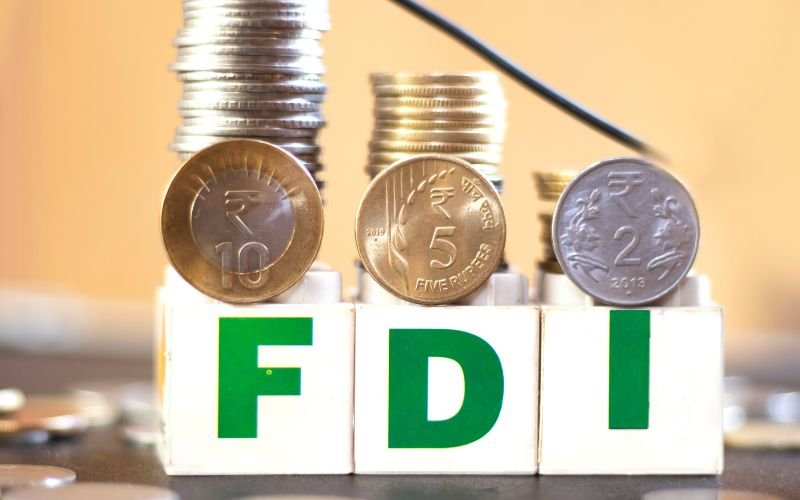Foreign Direct Investment Includes – Foreign Direct Investment (FDI) is a crucial aspect of the global economic landscape, serving as a catalyst for economic growth and fostering international business relations. In this comprehensive guide, we’ll delve into the intricacies of FDI, exploring its definition, methods, benefits, disadvantages, types, and real-world examples.
Introduction
Foreign Direct Investment (FDI) entails an investment from one country into a business or corporation in another country with the intention of establishing a lasting interest. Unlike foreign portfolio investments, which involve passive holding of securities, FDI goes beyond, aiming for active involvement and control.
You can Also Read:
Importance of FDI in the Global Economy
FDI plays a pivotal role in enhancing global economic ties, promoting business expansion, and contributing to the development of both investing and host countries. Its lasting interest feature distinguishes it from other forms of international financial transactions.
Elements of FDI
Understanding FDI requires an exploration of lasting interest and control. Investors must obtain at least 10% of the voting power in a foreign firm, signifying an intent to actively manage and influence its operations.
Voting Power and Control
The 10% stake is a key criterion, yet exceptions exist. In certain cases, control can be exerted over widely traded firms with smaller percentages of voting stock.
Methods of Foreign Direct Investment
Investors can engage in FDI through various methods, such as expanding businesses into foreign countries, reinvesting profits, intra-company loans, and collaborations.
Acquisition and Collaboration
Examples include acquiring voting stock, mergers, acquisitions, joint ventures, and starting subsidiaries. Amazon’s establishment of a new headquarters in Vancouver serves as a prime instance.
Benefits of Foreign Direct Investment
Both businesses and host countries reap benefits from FDI, ranging from market diversification and tax incentives to economic stimulation and access to management expertise.
Economic Stimulation and Development
Host countries gain not only economic stimulation but also opportunities for human capital development and technology transfer.
Disadvantages of Foreign Direct Investment
While FDI brings numerous advantages, it is not without challenges, such as the displacement of local businesses and concerns about profit repatriation.
Regulatory Measures to Limit FDI
To address challenges, some countries implement regulations to limit FDI, ensuring a balance between economic growth and protecting local businesses.
Types and Examples of Foreign Direct Investment
Exploring the various types of FDI, including horizontal, vertical, conglomerate, and platform, provides insights into how businesses expand internationally.
Vertical FDI and Export-Platform FDI
Vertical FDI involves moving into a different level of the supply chain, while export-platform FDI exports output to a third country from foreign operations.
| Methods of Foreign Direct Investment |
|---|
| Expanding business in a foreign country: Amazon opening a new headquarters in Vancouver, Canada is an example. |
| Reinvesting profits from overseas operations. |
| Intra-company loans to overseas subsidiaries. |
| Acquiring voting power methods for domestic investors in a foreign company: |
| – Acquiring voting stock in a foreign company. |
| – Mergers and acquisitions. |
| – Joint ventures with foreign corporations. |
| – Starting a subsidiary of a domestic firm in a foreign country. |
| Benefits of Foreign Direct Investment for Businesses | Benefits of Foreign Direct Investment for Host Countries |
|---|---|
| Market diversification. | Economic stimulation. |
| Tax incentives. | Development of human capital. |
| Lower labor costs. | Increase in employment. |
| Preferential tariffs. | Access to management expertise, skills, and technology. |
| Subsidies. | Economic benefits. |
| Disadvantages of Foreign Direct Investment |
|---|
| Displacement of local businesses due to the entry of large firms, such as Walmart. |
| Profit repatriation, where concerns arise that firms may not reinvest profits back into the host country, leading to significant capital outflows. |
| Many countries have regulations limiting foreign direct investment to address these challenges. |
Conclusion
In conclusion, FDI stands as a dynamic force in the global economy, influencing economic growth, trade relations, and business strategies. As we navigate the complexities of international investments, it becomes clear that FDI is not just an economic transaction but a bridge that connects nations and fosters mutual development.

